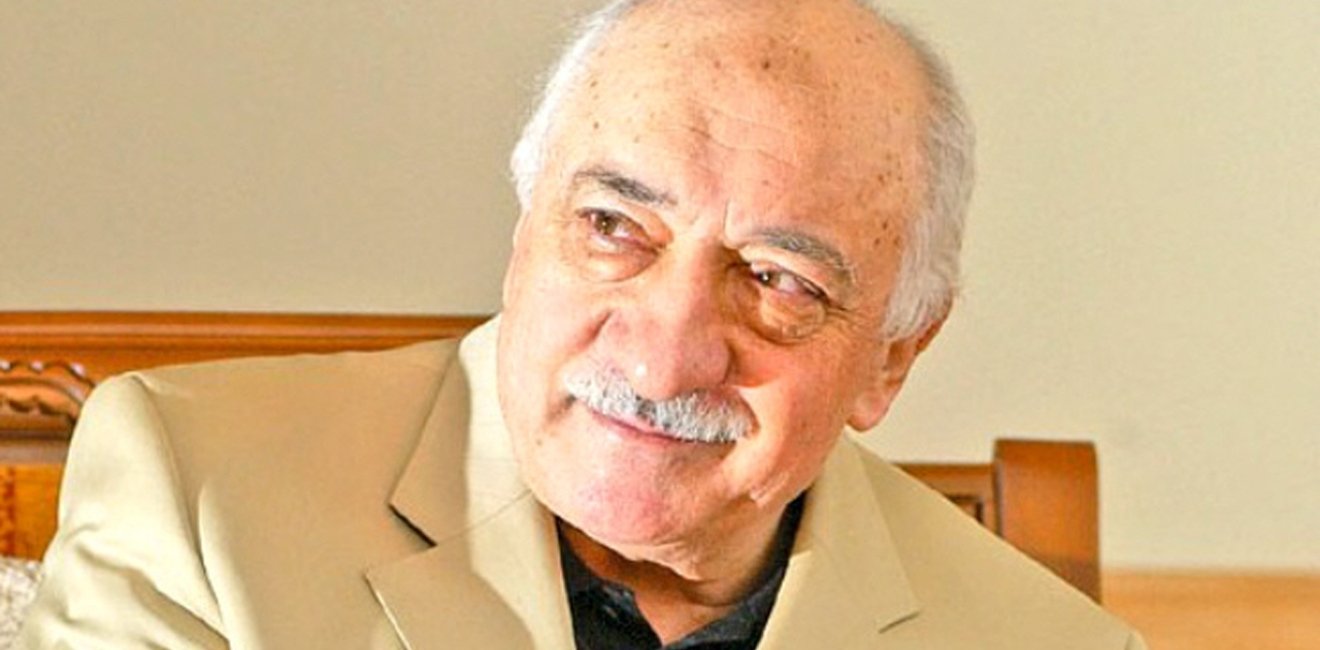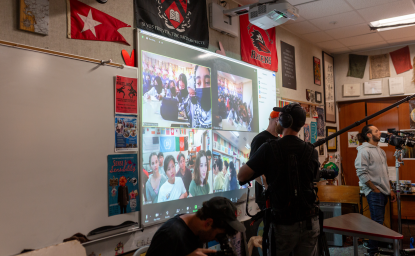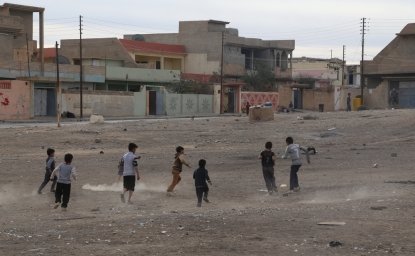Who is Fethullah Gulen?
Shortly after the July 15 coup, Turkish President Recep Tayyip Erdogan accused U.S.-based cleric Fethullah Gulen and his followers of orchestrating the plot. Gulen inspired a popular movement called Hizmet, which now has supporters in Turkey and some 140 countries on six continents. He has been in self-imposed exile, in Pennsylvania, since 1999.
Gulen immediately denied that he was behind the plot. But after the coup, the Turkish government arrested or suspended nearly 20,000 members of the police, civil service, judiciary, and military. More than 2,700 judges who allegedly had links to the Gulenist movement were removed. The government also fired nearly 24,000 teachers and Interior Ministry employees and 1,577 university deans.
 Gulen was born in Erzurum, in eastern Turkey, in 1941. He graduated from a private religious school and became a licensed imam in 1958. He was inspired by the ideas of Said Nursi, a Kurdish cleric with a Sufi background. Nursi argued that Muslims should embrace modernity.
Gulen was born in Erzurum, in eastern Turkey, in 1941. He graduated from a private religious school and became a licensed imam in 1958. He was inspired by the ideas of Said Nursi, a Kurdish cleric with a Sufi background. Nursi argued that Muslims should embrace modernity.
Gulen moved to Izmir in 1966, where he built a network of boarding houses known as “lighthouses” that offered academic help for students. Gulen and his supporters gradually established schools, charities, and other civil society organizations. By the early 1980s, he had cultivated a broad following in Turkey.
In 1999, Gulen relocated to the United States after a video surfaced in which he told supporters to “move within the arteries of the system, without anyone noticing your existence, until you reach all the power centers.” He was charged with attempting to undermine the state, but the charges were later dropped.
Gulen received a green card in 2008 and resides in Pennsylvania. He lives a reclusive life and rarely speaks to the press. He communicates with his followers primarily through sermons and publications.
What is the Gulenist movement, or Hizmet?
Hizmet, which means “service,” is a loose global network of Gulen supporters, who describe themselves as members of a faith-based civil society movement inspired by the cleric. Gulen’s teachings support “interfaith and intercultural dialogue, science, democracy, and spirituality” and oppose “violence and turning religion into a political ideology,” according to his official website. The movement promotes a moderate form of Sunni Islam.
Hizmet has no formal structure or organization, and Gulen does not directly manage its activities. Although the movement has been critical of the ruling Justice and Development Party (AKP) – particularly of Erdogan’s growing authoritarian tendencies – it has not pushed for greater involvement in politics or running for parliament.
Gulen’s supporters control hundreds of schools, companies, and charities in Turkey and around the world. Gulenists operate more than 1,000 schools and universities in more than 100 countries, including the United States. Despite the movement’s Islamic origins, its schools are secular and emphasize the physical sciences. In 1986, Gulenists gained ownership of the Zaman newspaper, which claimed to have the largest readership in Turkey. Gulenists also established Bank Asya, Turkey’s largest Islamic bank. In 2015, however, the Turkish government seized Zaman newspaper and nearly two dozen companies owned by Gulenists. Some of Zaman’s staff, including the editor, were arrested.
What is the relationship between Gulen and the Turkish Government?
 Gulen was once an ally of President Erdogan and the AKP, which came to power in 2002. Gulenists reportedly tapped into their religious networks to place Islamists in government positions. Ahmet Sik, a Turkish investigative journalist, alleged in 2011 that Gulenists had infiltrated the police, judiciary, and intelligence services and were using their positions to root out secularists. Sik was arrested on charges of plotting to overthrow the government while writing a book on Gulen and his supporters. He was later released.
Gulen was once an ally of President Erdogan and the AKP, which came to power in 2002. Gulenists reportedly tapped into their religious networks to place Islamists in government positions. Ahmet Sik, a Turkish investigative journalist, alleged in 2011 that Gulenists had infiltrated the police, judiciary, and intelligence services and were using their positions to root out secularists. Sik was arrested on charges of plotting to overthrow the government while writing a book on Gulen and his supporters. He was later released.
Gulen and the AKP, however, had a falling out in 2013. Erdogan accused Gulen of being behind corruption allegations that were made against several senior ministers. Since then, Erdogan has repeatedly accused Gulenists of trying to undermine state institutions. The government issued an arrest warrant for Gulen in 2014. In May 2016, Erdogan officially designated the Gulenist movement a terrorist organization, stating that "We will not let those who divide the nation off the hook in this country."
Did Gulen and his supporters play a role in the failed July 15 coup?
After the 2016 coup attempt, Erdogan blamed army officers in the “parallel structure,” alluding to Gulen and his followers. Gulen immediately denounced the plot. “As someone who suffered under multiple military coups during the past five decades, it is especially insulting to be accused of having any link to such an attempt. I categorically deny such accusations,” he told reporters. On July 16, he also suggested that the coup could have been staged. “It could be meant for court accusations and associations,” he said.
Erdogan has repeatedly called on the United States to extradite Gulen, and on July 19, Turkish Prime Minister Binali Yildirim announced that Turkey had sent dossiers to the United States requesting extradition. Secretary of State John Kerry expressed hope that “there will be a constitutional process and a legal process to deal appropriately with coup plotters.” He said that Turkey should present “any legitimate evidence that withstands scrutiny, and the United States will accept that and look at it and make judgments appropriately.”
Gulen told The Wall Street Journal that he does not think the United States "will honor a request that is based on the enmity of a regime, which is recognized as dictatorial and has lost all of its credibility in the eyes of the world."
Where does Gulen stand on the issues?
On democracy and human rights
“Through military intervention, democracy cannot be achieved.”
– July 16, 2016, according to the press
“I am hopeful that lessons will be learned from this experience and the current authoritarian trend will not last long and Turkey will restore its journey toward further democratization. What events or how much time this will take, however, I cannot speculate. If the Turkish example can succeed it will set a very positive example for the majority Muslim countries. I have not lost my hope despite the dire picture we are witnessing right now.”
-July 17, 2016, according to the press
“The Muslim world suffers from internal divisions, antidemocratic practices, and the violation of fundamental human rights and freedoms.”
“We should be freed from fear of the other and enjoy diversity within democracy. I believe that dialogue and education are the most effective means to surpass our differences.”
-February 25, 2010, in an interview
“Islam is balanced, broad, and universal on the subject of human rights. Except for those who strive to tear down the state or the legitimate administration, or who have willingly taken someone's life, the Qur'an teaches us that to take the life of a person unjustly is a crime against the whole of humanity (Al-Ma'ida 5:32). Such an evaluation cannot be found in any other religion or modern system, and such high value has never been attached on human life by any human rights commission or organization.”
“Freedom of faith, life, reproduction, mental health, and personal property are basic essentials that must be preserved for all. Islam approaches human rights from the angle of these basic principles.”
– Oct. 5, 2004, according to Gulen’s website
“As with the entire world, people in Turkey are also heading towards democracy…I believe from now on, both in Turkey and in the rest of the world, there will be no going back from democracy. I said democracy more than 20 years ago. At the time, I was assaulted by the newspapers that now support the current government.”
– June 1994, according to Gulen’s website
On Turkish politics
“We have never been directly affiliated with any one party, whichever party it may be. Whether it be MHP, CHP, AK Party, DYP and ANAP, even though these two parties don’t seem to be around anymore. [...] If any of them have a reasonable facet, a beneficial trait for law, for democracy, or have an ambition to serve the nation, if they have intentions of forming positive interactions with their surroundings, then we may be seen on a shared platform, for such initiatives.”
– March 2016, according to Gulen’s website
“The statements and the actions of the Erdogan government in the immediate aftermath of the attempted coup leave no question about their intentions. He described the event as a gift from God. The military was the one institution where they could not exert their control. They attempted to achieve that partially through the trials of military officers in the recent past. They used the judiciary and the police force against the military to achieve that and then turned against those institutions to purge members not loyal to them. But their repeated attempts to purge the military of the members who are not loyal to them were rebuffed by the general staff. The general staff refused to purge members whose names were provided on lists, insisting on legal proof for such a purge. Now, they have a golden opportunity to do that and they started immediately. I don’t believe in the sincerity of the current Turkish administration in the fight against [Islamic State]. Their taking control of the military would be disastrous for Turkey, Europe and the fight against [Islamic State].”
-July 17, 2016, according to media
“I don’t believe the U.S. and the world powers will turn a blind eye to the persecution in Turkey for much longer. However, so far the Western powers’ reaction to Erdogan for his oppressive policies has been disappointing.”
-July 17, 2016, according to media
On terrorism
“[Terrorism] is formed of certain fundamental problems, [including] ignorance, poverty, and fear of others. Some people take advantage of the young and foolish. They are manipulated, abused, and even drugged to such an extent that they can be used as murderers on the pretext of some crazy ideals or goals.”
“Terrorism is one of the cardinal sins that the Koran threatens with hellfire.”
-February 25, 2010, in an interview
“In Islam, killing a human is an act that is equal in gravity to qufr (not believing in God). No person can kill a human being. No one can touch an innocent person, even in time of war. No one can give a fatwa (a legal pronouncement in Islam, issued by a religious law spcialist, concerning a specific issue) in this matter. No one can be a suicide bomber. No one can rush into crowds with bombs tied to his or her body. Regardless of the religion of these crowds, this is not religiously permissible. Even in the event of war—during which it is difficult to maintain balances—this is not permitted in Islam.”
“One of the people whom I hate most in the world is [Osama] Bin Laden, because he has sullied the bright face of Islam. He has created a contaminated image. Even if we were to try our best to fix the terrible damage that has been done, it would take years to repair.”
“A real Muslim, one who understands Islam in every aspect, cannot be a terrorist. It is hard for a person to remain a Muslim if he becomes involved in terrorism. Religion does not approve of the killing of people in order to attain a goal.”
– Sept. 30, 2004, in an interview
On Islam
“I consider myself an ordinary Muslim who is constantly working to put himself in the framework established by the Koran and the tradition of the Prophet Mohammed. I study the works of experts of jurisprudence, Koranic commentary, hadith commentary, and Sufism. In the past I was asked about my views on the spiritual dimension of Islam. I was asked whether I belonged to a Sufi order or whether I was against Sufism. Although I do not belong to any Sufi order and I have never attempted to establish one, I can say that the righteous masters of Sufism have influenced me greatly.
“Finally, my understanding and vision of Islam cannot be understood only through my words. My lifework and the projects through which my friends and I hope to serve humanity should also be considered. The educational dialogue, humanitarian assistance initiatives represent our vision better than words.”
– August 14, 2013, in an interview with The Atlantic
On women
“The noble position of motherhood aside, our general opinion about women is that, while taking into account their specific needs, it should be made possible for them to take on every role, including the jobs of physician, military officer, judge and president of a country. As a matter of fact, in every aspect of life throughout history Muslim women made contributions to their society. In the golden age (referring to the years during Mohammed's lifetime) starting with Aisha, Hafsa, and Um Salama (the Prophet's wives), had their places among the jurists and they taught men.
“When these examples are taken into consideration, it would be clearly understood that it is out of the question to restrict the lives of women, narrowing down their activities. Unfortunately, the isolation of women from social activities in some places today, a practice that stems from the misinterpretation of Islamic sources, has been a subject of a worldwide propaganda campaign against Islam.”
– August 14, 2013, in an interview with The Atlantic
Cameron Glenn works in the Center for Middle East and Africa at the U.S. Institute of Peace.





